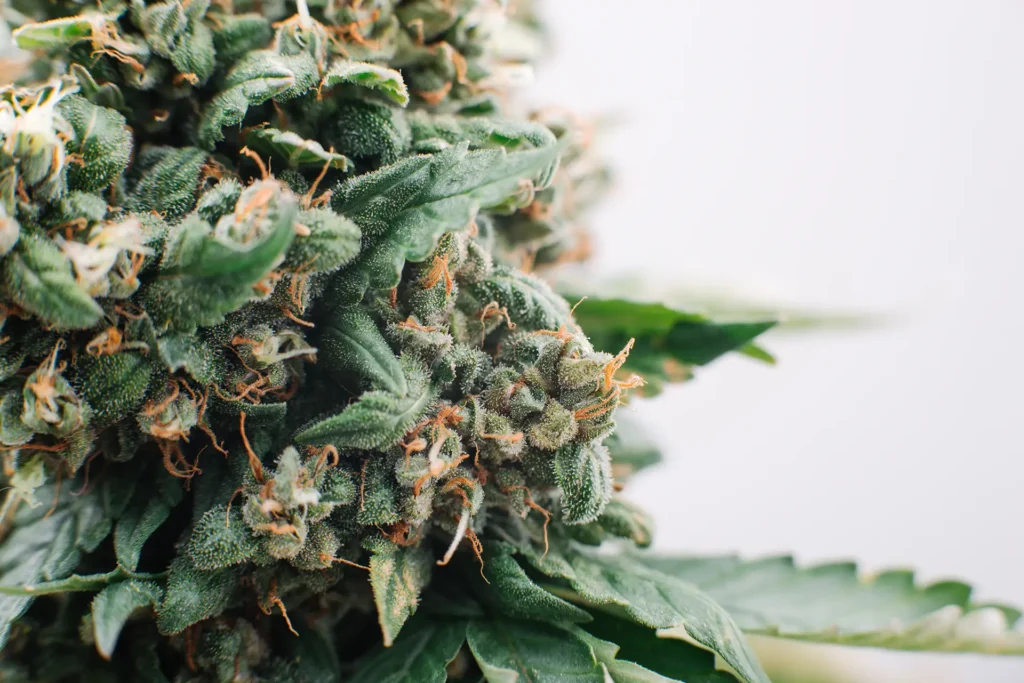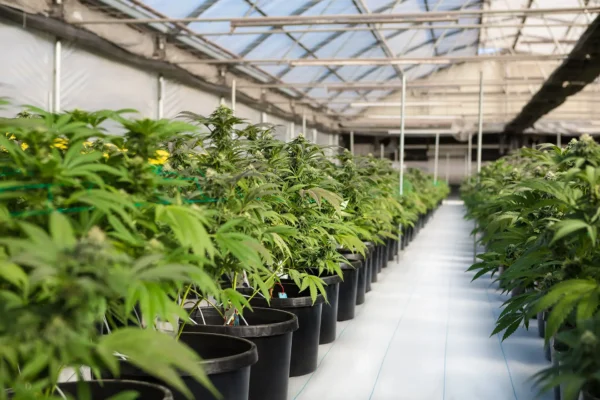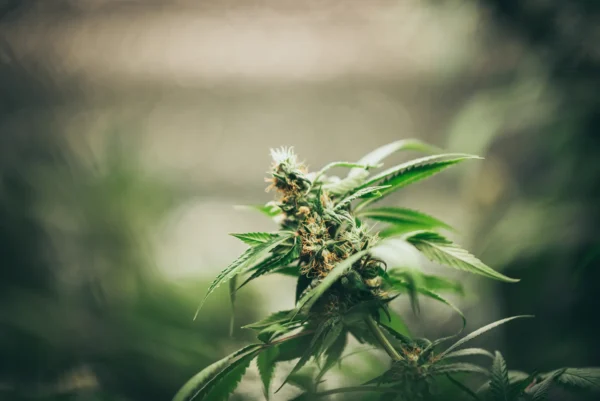Conversations about medical cannabis are increasing, but they’re often clouded by misconceptions — many of which come from associations with illegal or recreational use, whilst others are completely unfounded.
At Curaleaf Clinic, we believe informed health choices start with clear, evidence-based information. In this article, we’ll unpack some of the most common questions and concerns, helping you understand the differences between illegal cannabis and medical cannabis prescribed under careful supervision
Is Medical Cannabis Addictive?
Medical cannabis, like many medicines, can be abused and is not without risk or side effects. However, it carries a lower risk of addiction compared to illegal cannabis, which may be contaminated with adulterants which increase this risk, and certain medications like opioids. Higher daily doses of THC (tetrahydrocannabinol) may increase the risk of dependency in some individuals, but this risk is carefully managed for legal patients by our multidisciplinary team.
Patients at Curaleaf Clinic are assessed to ensure they are suitable candidates for treatment with medical cannabis. They also have regular check-ins with an appropriate clinician to ensure treatment is appropriate and progressing as it should throughout their care. Finally, we engage with each patient’s GP and where necessary secondary care teams. This careful approach helps minimise risks while supporting each patient’s specific needs and goals.
Can Medical Cannabis Affect Your Weight?
The effects of medical cannabis on weight will vary depending on the individual and the condition being treated, but there’s no definitive research showing that medical cannabis will make you lose or gain weight.
In some cases, medical cannabis may increase appetite, which can lead to weight gain. This can be beneficial for individuals experiencing reduced appetite or unintentional weight loss due to certain health conditions.
Conversely, some patients report weight loss as an indirect effect — for example, if they experience improved sleep quality or reduced pain, allowing for increased physical activity or changes in metabolism that support weight management.
Does Medical Cannabis Kill Brain Cells?
The idea that cannabis kills brain cells is a long-standing myth that dates back to flawed animal studies in the 1970s. Those studies exposed animals to extreme amounts of cannabis smoke in ways that restricted oxygen, and the brain damage observed was more likely caused by oxygen deprivation than cannabis itself.
Modern research shows that cannabis does not directly destroy brain cells in healthy adults. However, heavy and long-term cannabis misuse — especially starting during adolescence, when the brain is still developing — can affect brain function, memory, and attention over time. These effects are linked to changes in brain connectivity, not the death of neurons.
When medical cannabis is prescribed by a specialist to suitable patients – and used as directed – there’s no evidence it causes brain cell loss. In fact, in certain studies it has been shown to aid in neuroplasticity. Regular check-ins with our specialist team can help ensure treatment is appropriate and safe care.
Can Medical Cannabis Give You Cancer?
Concerns about cannabis and cancer often come from studies on smoking cannabis. Smoking exposes the lungs to harmful substances produced by combustion.
Cannabis itself is not recognised as a direct cause of cancer. The main risk arises from inhaling smoke created from burning cannabis, which can produce carcinogens, and other harmful chemicals that may increase the likelihood of cancer and other long-term health issues. Many individuals who consume cannabis recreationally may mix their cannabis with tobacco which may increase the risk further.
In the UK, medical cannabis is usually prescribed as oil, pastilles, vape cartridges or dried flower for vaporisation — methods that avoid combustion and the harmful byproducts found in smoke. In the UK smoking medical cannabis is not legal.
If you have questions about medical cannabis and your health, our specialist team can provide clear, evidence-based advice tailored to you.
Does Medical Cannabis Cause Psychosis?
The link between cannabis and psychosis is complex and still being studied. Research suggests that the use of high-THC cannabis, especially starting in adolescence, may increase the risk of developing psychosis in certain individuals. It is not always possible to identify those who are most at risk of developing psychosis, however those individuals who have pre-existing history of psychosis, family history or complex mental health conditions may be most at risk.
At Curaleaf Clinic, we take a careful, individualised approach to prescribing medical cannabis — particularly for patients with a personal or family history of psychosis. While some studies indicate a possible association between frequent, high-THC cannabis use and the onset of psychotic symptoms in vulnerable individuals, this risk appears much lower in medical settings where dosage, product quality, and patient response are closely monitored.[1]
Our clinical team reviews each patient’s mental health history during triage and throughout treatment. If you notice any changes in mood, perception, or behaviour, contact us right away so we can assess and adjust your treatment plan if necessary.
Medical Cannabis Side Effects and Risks
When exploring a new treatment option, it’s important you understand all the possible risks and side effects.
Some possible side effects of medical cannabis include:
- Dry mouth
- Tiredness
- Drowsiness
- Short-term concentration difficulties
- Headache
Everyone responds differently, and side effects can vary in type and severity. At Curaleaf Clinic, you’ll have regular follow-ups with a specialist to monitor your health and treatment progress, making dosage or treatment adjustments if required.
If you notice any unwanted effects or have concerns, please contact us immediately so we can support you.
Quick Summary: Medical Cannabis and Misconceptions
- Many misconceptions about medical cannabis come from health risks linked to illegal or unregulated products, rather than medical cannabis prescribed and monitored by healthcare professionals.
- At Curaleaf Clinic, medical cannabis is prescribed only after a careful individual assessment and patients are reviewed regularly to help ensure it continues to be suitable for them and they are prescribed the most appropriate preparation, balancing clinical benefits and risks.
- Being aware of both the potential risks and possible side effects can help you make a more informed decision about whether to explore this treatment option.
Informed Medical Cannabis Care with Curaleaf Clinic
Misconceptions about cannabis — often based on experiences with illegal or recreational use — can prevent people from exploring whether medical cannabis could be right for them.
Understanding the differences between illicit cannabis and clinically prescribed, carefully monitored medical cannabis is an important step in making an informed choice.
If you have questions, our team is here to help. If you’re considering whether medical cannabis may be appropriate for you, the first step is speaking to a qualified specialist. Register today to check your eligibility for a consultation.
References
- Schoeler, T., Baldwin, J.R., Martin, E. et al. Assessing rates and predictors of cannabis-associated psychotic symptoms across observational, experimental and medical research. Mental Health 2, 865–876 (2024). https://doi.org/10.1038/s44220-024-00261-x



